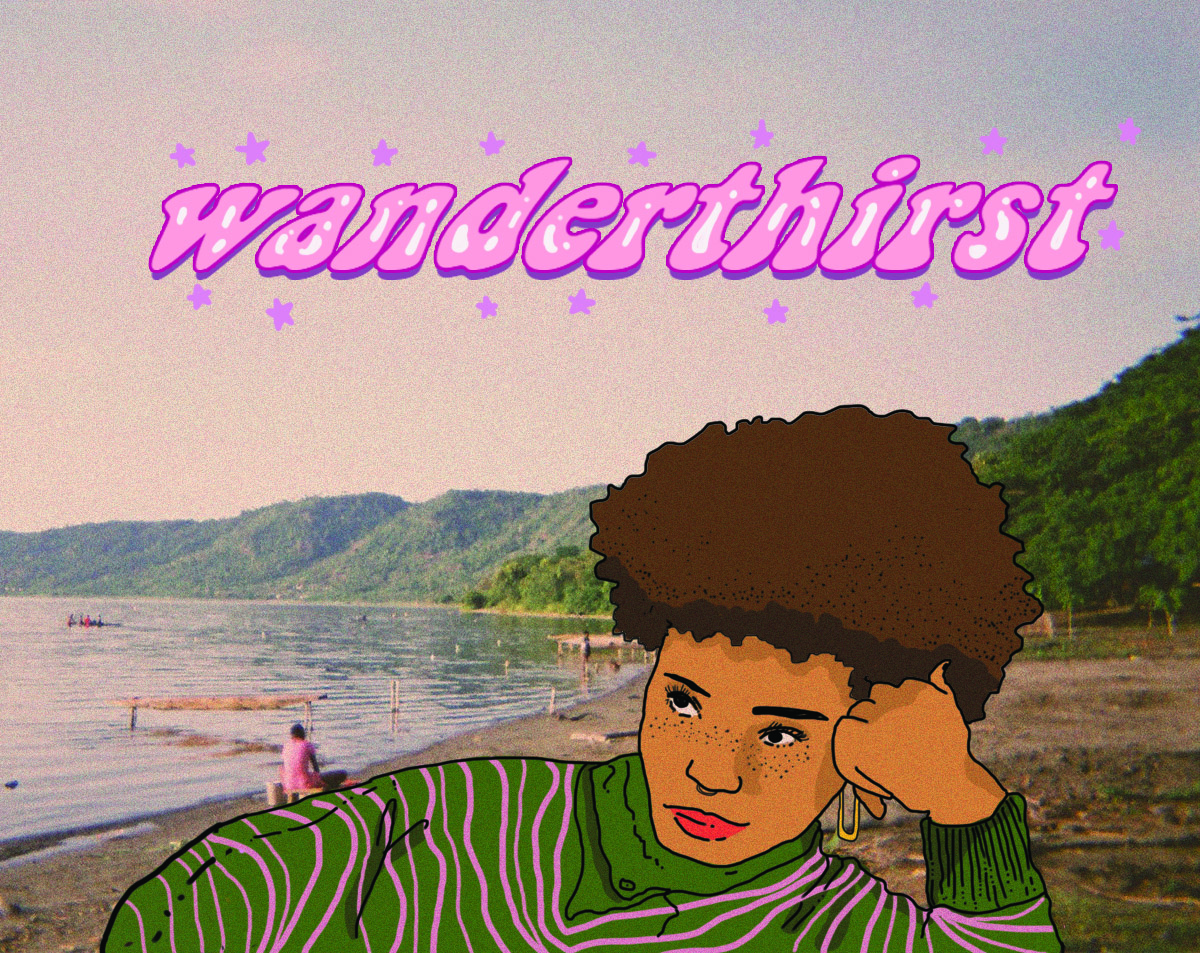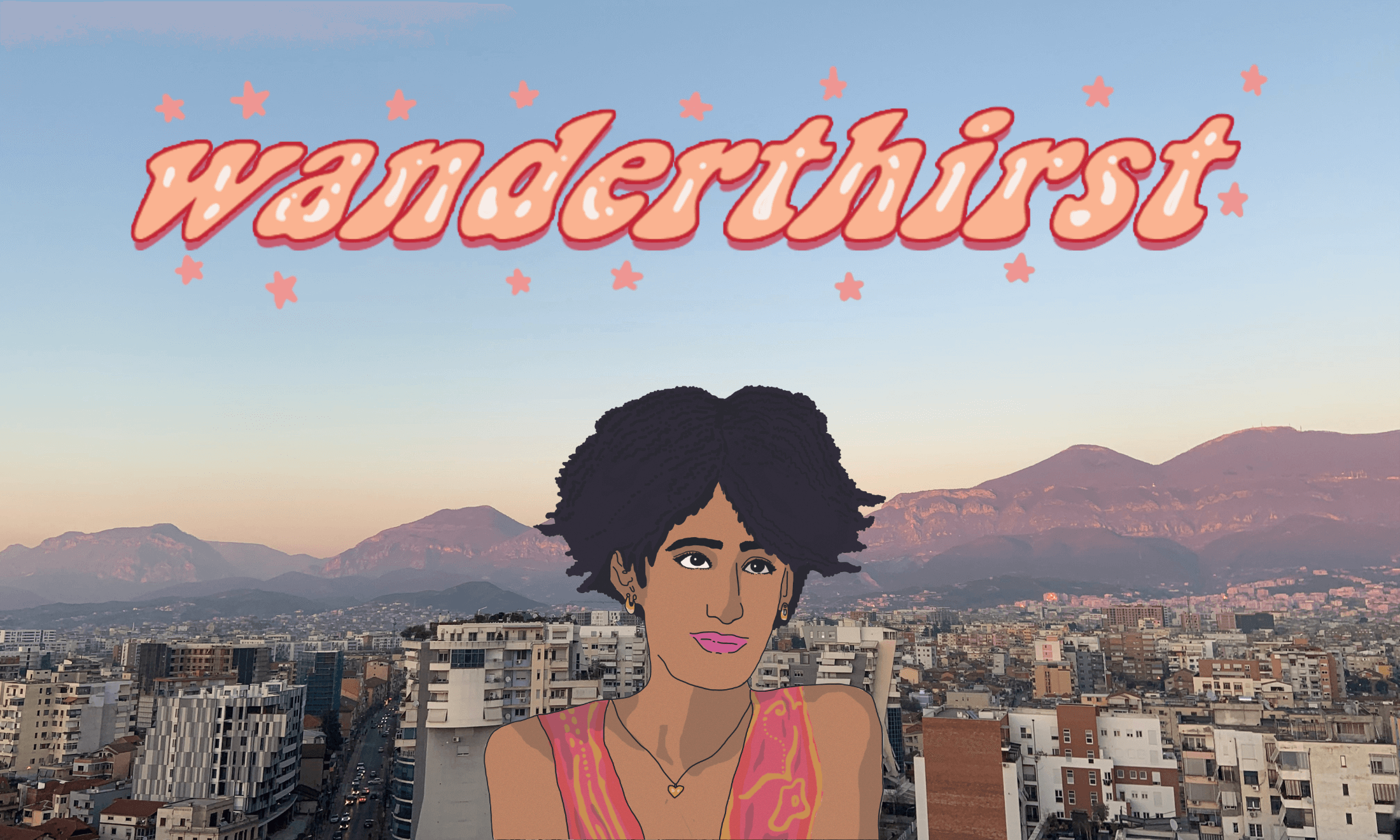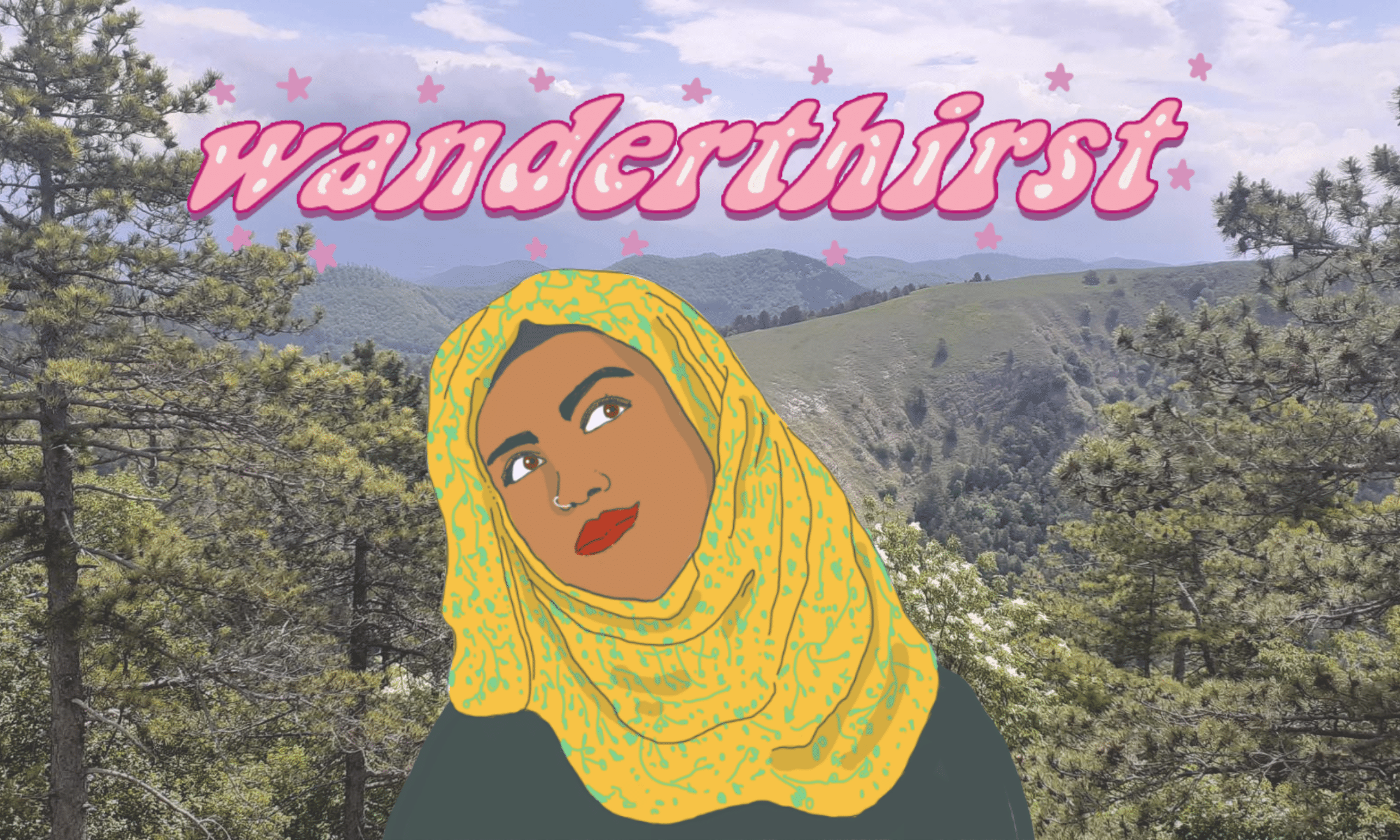
Illustration by serina.kitazono
As a light-skinned, mixed-race woman, born in Paris and raised across Europe by my white single mother, my blackness fluctuates somewhere between pride and a century-old racist rule about “drops of black blood”. Travelling to the Gulf of Guinea, where my paternal lineage lies, was an unspoken wish for long. The three months I finally spent in Togo, Ghana and Benin in Spring 2018 was both balancing and a deeply troubling time. I talked to people who shared a similar experience there, whether they were African-American, Carribean, adopted, born in the West – for many of us, this was “The Big Trip”, and I was surprised to see that like me, many saw in this journey not only a decisive experience but also a therapy.
Being of African descent is a complicated issue. Sometimes it’s historically bittersweet, full of pride, visible, contested. African heritage is a physical reality and an almost metaphorical sense of belonging at the very same time. It’s an identity cue that stretches from the children of deported and enslaved Africans in the United States or the Caribbean to second generation black migrants in France or the UK. An inherently geographic term, “African descent” also has the incredible strength of conflating time, compressing space, and drawing an alternative geography, imagined, felt – and taken on with pride. As Martiniquais poet Aimé Césaire wrote: “not an inch of this world [is] devoid of my fingerprint […] land red, sanguineous, consanguineous land.”
Images by Raphaelle Efoui-Delplanque
Africa, the continent, the Motherland, is thought of as a refuge and an aspiration by many of us whose ties with the continent are loose, from one-generation “loose” to taken-in-chains “loose”; for those whose skin might write identity queues they cannot pay. I’ve been trying to find a term to describe this, but as any attempt to generalise and tag such diverse experiences in the African diaspora, it failed. “Non-African blackness” is not it; but maybe it is – depending on the perspective, on whether we lead a European national team to World Cup victory or not, Western societies may shift their visions on us; granting us, say, Frenchness, then moving us to Other again.
Of course, being able to spend three months or more travelling is a rare privilege – but do include into your travel planning that you might need time to let go of very specific expectations and fully engage with your trip, especially if it is something that means a lot to you.
“Advice included not expecting to feel a sense of arrival or home; not expecting to like it in my father’s country, Togo; and not expecting anything at all”
Prior to my departure, a lot of well-meaning people were telling me “not to get my hopes up” as to what I would find and feel in my travels – advice included not expecting to feel a sense of arrival or home; not expecting to like it in my father’s country, Togo; and not expecting anything at all. My truth was and is: after craving a part of yourself for a lifetime, after building the courage to look for it for so long, after hopping on that plane, there was no way I wasn’t going to get my expectations up! I’m so glad I did because it gave me the strength I needed at the moments I needed it.
In my experience, it really isn’t as much about keeping your expectations low as it is about opening your mind and your heart to the fact that you might not recognise everything as a fulfilment of your expectations, yet everything might just fall into place – and you have every right and reason to put faith in that.
Curate your itinerary. I more or less consciously ended up tracing my family roots backwards along the Gulf of Guinea, paying no particular attention to colonial borders which took me from current Ghana to the east of Benin. Even if you don’t know of any personal roads to follow, curate your path: it feels so empowering to shape your travels along lines that you make of your heritage. Follow the history of a people’s resistance to slavery, or of your favourite kingdom – West African history is more than rich enough!
Claiming blackness with pride is a beautiful thing, and as with any identity-building element, it is oftentimes something that we don’t like to see contested. In my experience, though, it is from letting go of my understandings and self-perceptions of race that I managed to get into real dialogues. Convinced that I was African-American, a member of the Association for African-American Repatriation in Accra, Ghana, suggested I apply for a plot of land. In Togo, I went from being called white to being thought of as from another part of the country because of my light skin; to sudden acts of full inclusion into “African-ness” by strangers. The strongest message of all might have been precisely that of how many sides and how much freedom there was in African-diaspora and how, to some extent, I could be all of the above – and much more – at once.
“Curate your itinerary. I more or less consciously ended up tracing my family roots backwards along the Gulf of Guinea, paying no particular attention to colonial borders which took me from current Ghana to the east of Benin”
Highlights include:
Enjoying phenomenal street styles and a perspective on a more urban, richer West Africa in Accra (Ghana) – do not miss Wednesday Salsa nights at Afrikiko for proper flamboyance! Staying at Somewhere Nice allows you to meet cool locals and travellers from all over the world on a small budget, and the pool and breakfast are great bonus points!
Exploring the depth and beauty of nature at West Africa’s most southern point, Cape Three Points (Ghana), where you can stay at Escape 3 Points’ huts on the beach for a little ecological treat; or, visit the impressive waterfalls at Kpalimé (Togo).
Learning about the (matrilineal) history of the Ashanti in Kumasi (Ghana) and the controversial grandeur of the Abomey kingdom (Benin).
Feeling the power of diasporic ties, from W.E.B. Du Bois’ house in Accra to the photo series of Pierre Vergès in the basement of the Fort of Ouidah (Benin), showing the parallels between Beninese and black Brazilian culture.
Keeping your eyes and ears open for the casual presence of spirituality and voodoo and finding appeasement in Ouidah, at the Python Temple and elsewhere.
Useful Information
Note that there are quite a few touristic places such as restaurants in Ghana, Togo and Benin which are owned by European “adventurers”. As an Afro-European woman, I ended up feeling uncomfortable in most of them, because to a large extent they reproduce the colonial division of labour and managerial practices. Plus, one does not go all this way to experience “casual” racism from hotel owners!
Getting into most West African countries, including Ghana, Togo and Benin, requires a Yellow Fever vaccination. Think about seeing your doctor sufficiently ahead of your travel, as they will issue a vaccination pass which you’ll need to present at border crossings.
As a solo woman traveller, I was always particularly aware of my surroundings. Just like anywhere else, be on the lookout for pickpockets and scams. Also, the roads are often very poorly lit – if at all – even in bigger cities. Make sure you have a light source with you, and when possible, try to avoid being alone in unfamiliar neighbourhoods once it’s dark.












